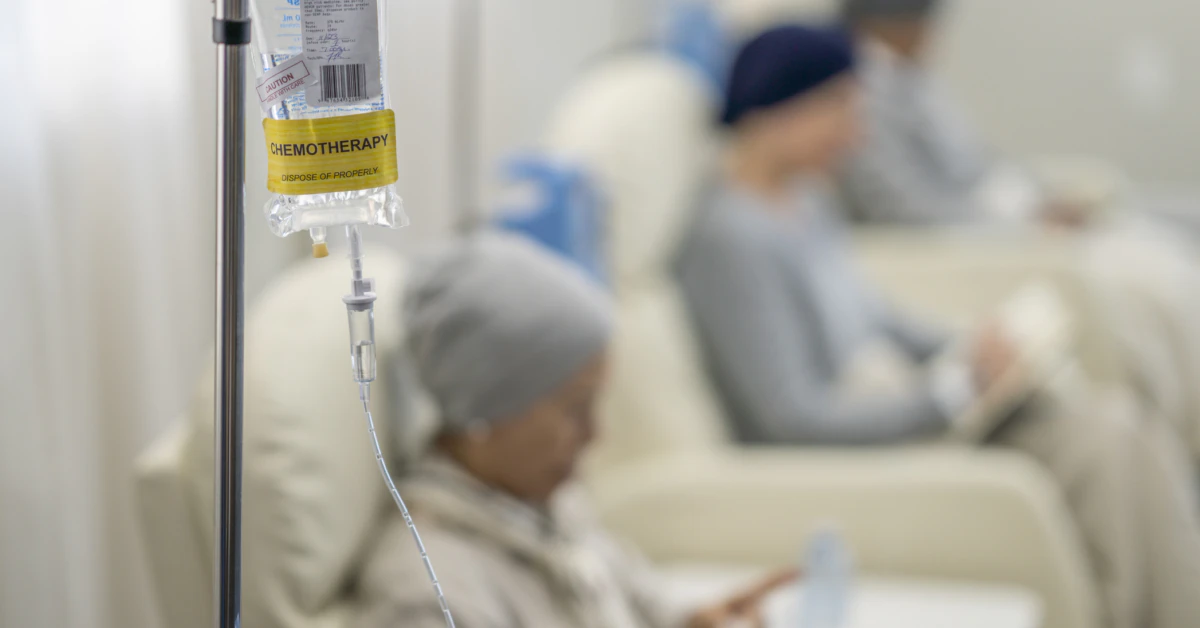You know how your friend swears they can “feel” the best time to plant tomatoes, while others stick to weather apps? Now imagine applying that kind of intuition—but grounded in science—to chemotherapy effectiveness prediction. Esophageal cancer doesn’t follow a gardening calendar, though. For patients battling esophageal adenocarcinoma (EAC), the “sixth deadliest” cancer worldwide, guessing if chemo will work feels like stepping into a dark room clutching only a candle. One-third to two-thirds of patients on neoadjuvant chemotherapy (NACT) develop resistance. That’s time, energy, and emotional bandwidth down the drain…
…and here’s the kicker: until recently, no tool predicted resistance accurately. Classic “trial by fire” medicine. But a new precision oncology platform using Organ Chip tech is rewriting the script. Let me break down how this works—and why it’s not quite time to throw out your chemo-old-school handbook yet.
How Organ Chips Read Your Tumor’s Mind
Forget lab rats shaking their heads at emails. EAC Chips are grown from your own tumor cells—literally. Doctors take a biopsy, plus the fibroblasts (connective tissue cells) hanging around it, plant them into a microfluidic chip, and hit the “run” button. Within 12 days, like a stress test for your cancer, they see if chemo wilts the cells or they grow stronger. The tech mimics your body’s real tumor environment too, with blood flow, pressure, and neighboring cells. Not fancy? Let’s check some science.
The 8-Patient Test That Blew Minds
In a small Harvard trial, researchers built EAC Chips for eight people. Four saw their tumor cells die in the chip. Four lived through chemo baths. Guess what? These results mirrored the patients’ actual outcomes—100% accuracy. Imagine your doctor saying, “We’ve seen your cancer’s kryptonite” before starting treatment. That’s the promise here.
Why Old Methods Miss the Mark
Traditional chemo response analysis sometimes feels like asking your car’s thermos if it “likes” diesel fuel—it doesn’t know! Labs rely on 2D cell cultures or animal models that ignore human bodies’ chaos. Organ Chips? They’re 3D, dynamic, and mean (in a good way). One expert compared it to “screening a play with real actors instead of movie posters.” Precision oncology needs that realism.
EAC’s Ugly Chemo Truth
Look, I get it. Reading about “possible outcomes” gets heavy. But let’s go here: EAC tumors are ninjas of resilience. Your oncologist picks a cocktail—maybe Cisplatin plus Capecitabine, or EOX—and hopes for the best. Meanwhile, you’re side-effect shopping: fatigue, nausea, hair drama. If resistance kicks in? At best, you waste time battling bugs. At worst, surgery gets delayed or smaller survival shots. Yeah, messy.
Chemo Cocktails vs. Organ Chip Forecasts
| Chemotherapy Regimen | Traditional Approach Predicts? | EAC Chip Predicts |
|---|---|---|
| Cisplatin + Capecitabine | “Maybe?” | “Joke’s on you, chemo—dead tumor!” |
| Carboplatin + Paclitaxel | “Sure?” | “Slow-growing tumor, hi-5 to survival!” |
| EOX (Epirubicin, Oxaliplatin, Capecitabine) | “Let’s try?” | “Resistant AF, skip the hype.” |
The table’s exaggerated humor hides a serious divide: standard methods trip on uncertainty. Organ Chips state an honest “no Bueno” before IVs start dripping. Pro tip: Researchers from Bioengineer.org still call this a “first step,” but even small “first steps” can tremble EAC’s walls.
What Else Sabotages Chemo?
Hold on—doesn’t your tumor’s “behavior” depend on more than just DNA? The Organ Chip model nails the cell biology, but reality sneaks in curveballs. Like TP53 gene mutations (Cancer Research UK calls it the “guardian of the genome”), which can moonwalk with chemo resistance 𐂀. Or your metabolism’s speed racing through drugs too fast to work. And yes, even your grandma’s advice—“eat, Maria!”—matters here. Sounds silly? It’s not.
When Your Body’s Stress Might Outsmart Science
Even an Organ Chip can’t 100% guess how your sleep schedule or white-knuckling stress impacts chemo. One Münich Eye article explained that lifestyle factors—as basic as hydration or mood—could change your chemo response. Bizarre, right? So while the Organ Chip is your Sherlock for tumor habits, you become Watson. Sync up, and you win.
The TP53 Plot Twist
Here’s a fun fact snatched from PubMed: if your TP53 gene resembles Swiss cheese—gaps and variants—it may signal doom for platinum-based chemo like Cisplatin. But here’s the catch: not all TP53 mutations equal resistance, and Organ Chips can’t yet spit out why a cell shrugged off the poison. Got it? Science often comes with footnotes.
From Lab to Liver, What You Can Do Now
Okay, let’s say you’re fired up. “I want this chip-boss tech!” Stop. Before grabbing your phone to Google “Organ Chip trials near me,” check two things. First? It’s early. Only 8 patients tested so far in the Harvard project (alarming, but hopeful). Second? Ask your oncologist about clinical trials. Some already combine Organoid models with chemo planning—they’re just not in mainstream clinics yet.
How to Start the Chat With Your Oncologist
Last week, I talked to Sarah, a 51-year-old EAC survivor. She didn’t wait for permission. She sent her doctor a link to the Wyss Institute’s chip platform and said, “Why not me?” Her doc paused… then found her an academic center pursuing similar testing. Your turn? Just ask.>
You Deserve Better Than “Hope For the Best”
Do you trust telling someone you “miracle-weighted” the chemo coin flip? That’s what current practice feels like. Precision oncology is still “fragile.” But once you dare ask, you become a data point hurrying its breakthrough.
Trusting the Future Without Naively Holding Hands
Bottom line: Let’s not worship any test. Organ Chips aren’t divine; they’re early miracles. You might ask why 8 patients matter… or if Organ Chips predict recurrence months later. But they’ve opened the door. Swing it wide.
Honestly? This feels like the Wright Brothers’ first flight. Grounded, but someone said, “Planes might fly.” So, should you tweet your onc doctor a Harvard press release? Bold? Maybe. But remember: they can’t prescribe you a tech that’s still booking FDA flights.
However, I’ll bet my shoes that within five years, chemotherapy response prediction via Organ Chip jumps from “lab toy” to hospital staple. Knowledge is your knife-point power when dealing with EAC. Cut what doesn’t work, keep what does.
Wrapping It Up: Your Cancer, Your Map
So let’s gut-check the game now: Organ Chip wins the “earliest actionable prediction” title. It changed the fate of 4 out of 8 patients promptly. Still, this isn’t found in every hospital yet. Big trials? Later. But here’s your cheat—start asking! Start snooping into clinical trials, start being the loudest advocate at your own desk.
P.S. If you have a different story—maybe your chemo cracked your tumor wide open—is that a sign for your friend? Help others figure it out here. Comment, ask, or drop a “leave your own chip notes.” Patients aren’t single-player games. We’ve survived worse together.
A Gift That Gets You Smarter
Before closing—have a moment for yourself. This is heavy, but you’re looking for answers. Losing hope? That’s what resistance games do. But remember, science is your middle name in this fight. Reading articles like this? Part of your survival suit, trim. Plug into communities, blast out questions, and don’t dumb things down ever.
Hang tight. If today’s precision oncology is just a compass, tomorrow’s holds the actual treasure map. What do you plan? What questions eat you up? Write us. We’re alive because we share.


















Leave a Reply
You must be logged in to post a comment.